|
11th September 2021 Wogglecon was drawing to a close and the final game of the day was co-operative word-puzzler Letter Jam. What's in a game?
The numbered token are bright and colourful art-wise and while simplistic, the setup cards are pleasant enough. Otherwise, there's pretty much no more art, but this is a word game, how much art is needed? The game has practically no iconography that needs learning. How's it play? In Letter Jam each player is given a 5-letter word in the form of 5 face-down letter cards. Then the players have to collectively guess their individual words by looking at the clues given by other players and filling in the gaps. Setup
On to play
Endgame Discussion and cluegiving continue until one of the following 2 conditions are met. There are no more clue tokens or players are happy with their deductions and want to guess their words. Now all players take their 5 cards and keeping them face-down, rearrange them to spell the word they were originally given. Once this is done all players simultaneously reveal their words. If everyone has spelt a word, then everyone wins! Interestingly, it does not have to be the word that was given, so long as it's a real word, it counts! If one or more players hasn't spelt a word... well... there's always next time. Overall
Letter Jam is a pretty clever little game that will tax players' grammatical and spelling abilities. Players will want to try and spell out distinct or unusual words so that there's less ambiguity for other players who will then have a better opportunity to guess their own letters. Ultimately though, players will probably end up having to employ deductive reasoning and make educated guesses and hope for the best. If you're an analytical player who sees all the possible variations in a situation, you'll probably end up overthinking Letter Jam. There's not much more that can be said about Letter Jam, the game's depth doesn't arise from mechanics, it comes from players' abilities to spell words. Letter Jam is a light game to play, has a lot of replay value and plays up to 6. If I have any criticism of Letter Jam, it might that the game feels a bit too overlong for what it is and rules are slightly fiddly. Otherwise it's mostly straight forward to learn and the game will have crossover appeal to non-gamers and is a reasonably fun cooperative game to play.
0 Comments
6th October 2020 For the first time in nearly 7 months we're in Woking at 'The Sovereigns'. The last we were here was the 17th March! The Woking Gaming Club isn't really back up-and-running yet, but a few of us have raised our heads above the parapets to wave the flag and of course; play some games. The first game of the night was 'Medium', a light word-association card game. What's in a game?
How's it play? Before play begins the deck must be created, the number of cards used depends on the number of players. The deck is shuffled and the 3 crystal ball cards are shuffled into the bottom third of this deck. 6 cards are then deal to each player. Finally, the scoring tokens are laid out with the scores face down and the 1, 2 and 3 numbers displayed.
Endgame Play continues until the 3rd crystal ball card is drawn, which triggers the endgame. The game then continues until the current round is completed and all players have had an equal number of turns. Each player then tallies up the scores from the tokens to their left and right, highest score wins! Overall
There's not much to say. As you can see from above, Medium is a light game that may appeal to casual players, it is a game that can be quickly learnt. It's not a deep game either, random chance can play a part and sometimes you'll get 2 words that have no obvious commonality. There is some room for strategy in Medium though. The player that goes 2nd will have the opportunity to play a hopefully suitable second word. We didn't play the game extensively, but it seemed if a common word wasn't guessed first time, the 2nd and 3rd guesses weren't going to be any better. It's a strangely stressful game, I think it's because your guess will also affect your partner's score. Conversely; when it's not your time, observing how other people play is fun. One potential issue was the scoring, each 'level' of scoring has a 1-point variation in its score and some people are not fond of it. We house ruled it and used the other side of the tokens for scoring, a successful first guess would get 3 points, down to 1 for a successful 3rd guess. If you like somewhat stressful word-association games, then you might like this. Easy to learn and play, it's a reasonable little filler game. 24th November 2019 Sunday at 'The Sovereigns' in Woking continues. The next game was 'Codenames'. I have it on good authority that spies, above all other things, really like having codenames. So it's a good thing that the game 'Codenames' is all about spies. Actually, it's a team based card game about words, but I digress... Whats in a game? blah
How's it play? Codenames requires a bit of setup.
Overall
When describing Codenames I've not really explained the dilemma and challenge facing the spymaster players. The example I used had 'cat', 'pigeon' & 'ant' as all being blue. But in reality, it's more likely that not all of them would be the same colour, 'pigeon' might be red. Now the blue spymaster could simply say, "Animal, two.". But then they run the risk that the team might select 'pigeon' instead of the other choices and if they select the wrong word first, it stops their turn straightaway! So the spymaster has to select clues that don't draw their teammates to the wrong answer. This can be downright tricky. Now the spymaster could play it safe and select, "Meow, one." for 'cat' and use 1 word clues. The problem with playing it safe though, is that it probably won't win you the game unless you're already ahead. So doing 2 or 3 word clues can be a good way of getting ahead. The same principle applies to the other team members. When the spymaster gives you a clue for 3 words, managing to find all of them grants the team a good advantage. But getting wrong can prove a bad thing. It's a good implementation of a 'risk/reward' mechanic. A successful risk pays off and a unsuccessful risk penalises. There's only one small drawback to Codenames and that is that it basically needs at least 4 players to play and ideally even numbers of players too. The game goes up to 8 players, but I can't see a reason why team size should be limited to 4 (Other than it takes a longer to come to a consensus with bigger teams!). Codenames is easy enough to learn to be a 'crossover' game and has a high replay value. It's probably a bit too long for a filler game, but makes an excellent party game. Particularly when with larger groups and/or family members. 2nd July 2019.
Tuesday has arrived and gaming night with the 'Woking Gaming Club' at 'The Sovereigns' beckons. Whilst waiting for the later arrivals, a quick game of Just One was played. You can read my thoughts about it here. 25th June 2019.
Tuesday night gaming beckons at 'The Sovereigns' in Woking. The evening was kicked off by the word game 'Just One'. Just One is probably the best cross-over game ever. This is a co-operative party games that anyone can learn and easily play. What's in a game? The game comes with the following components.
That's it, all these components are plain and purely functional. It's like someone made a game out of the crap left over at then of a conference or something similar - well except for the deck of cards! How's it play? Firstly the deck of cards is shuffled and 13 cards are dealt face-down into it's own separate draw deck. The remaining cards can be placed back in the box, they are not needed for the game.
If the clues were 'Sylvester', 'Sylvester' and 'Whiskers'. Both iterations of 'Sylvester' would be erased and removed from the round and only 'Whiskers' would be left.
Overall My only gripe about this game, is in the selection of words. Some types of words are a lot easier to get clues for. Example 'Cat' for example is easy, I can think of lots of possible clues. 'Panther' on the other hand is a lot harder to think of clues for. I think of 'Black', but that's about it. Just One also has a little more nuance to it than what you would expect. The rule about removing duplicate clues is what makes the game in my opinion. Going for an obvious clue risks having 2 or more clues removed from the game! But going for something too obscure risks muddling the clue. But overall all, Just One is party game that's for up to 7 players, that is also co-operative and is easy to learn. What's not to like? |
AuthorI play, I paint. Archives
March 2024
Categories
All
|

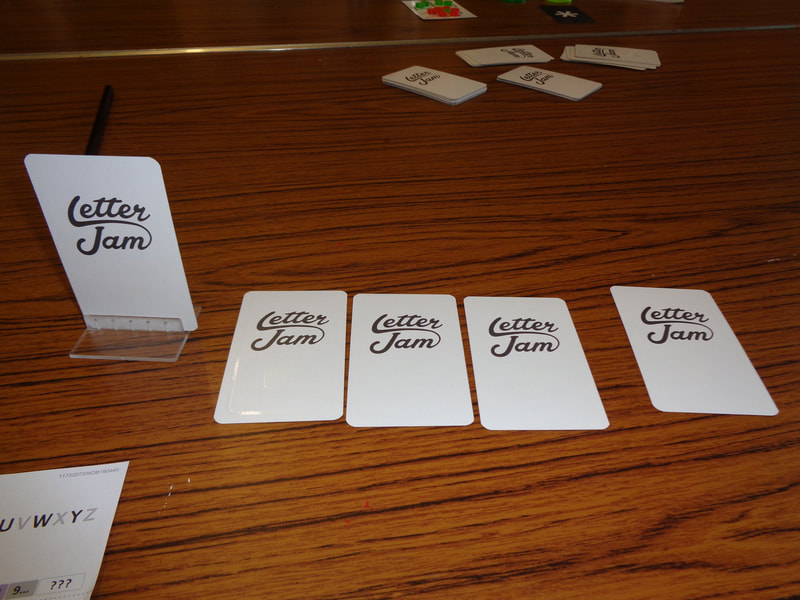
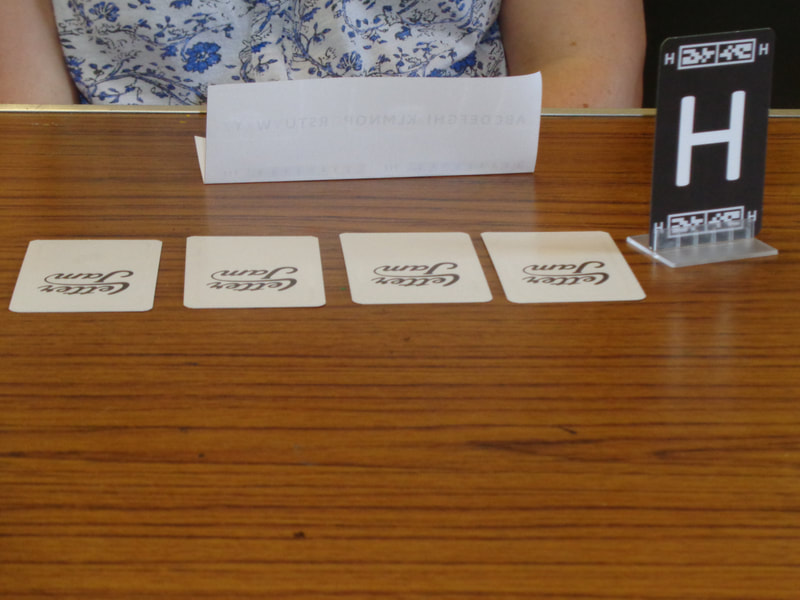
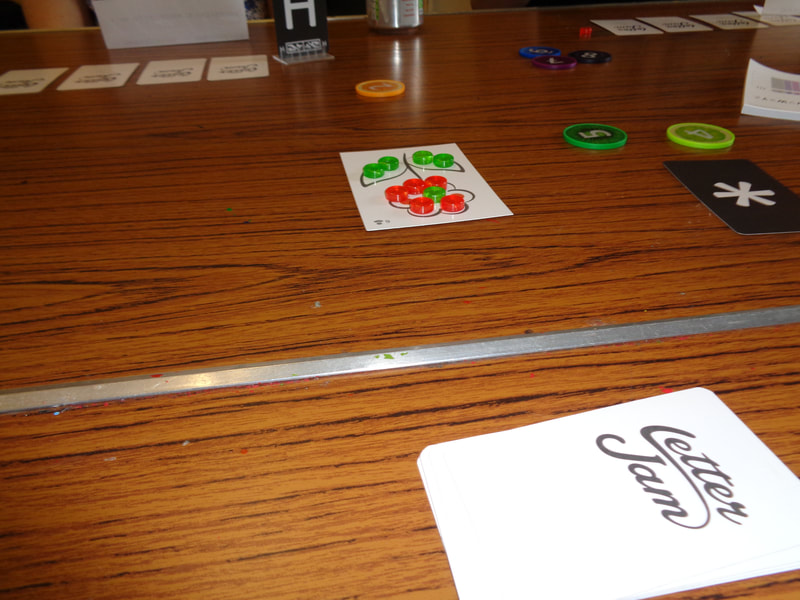
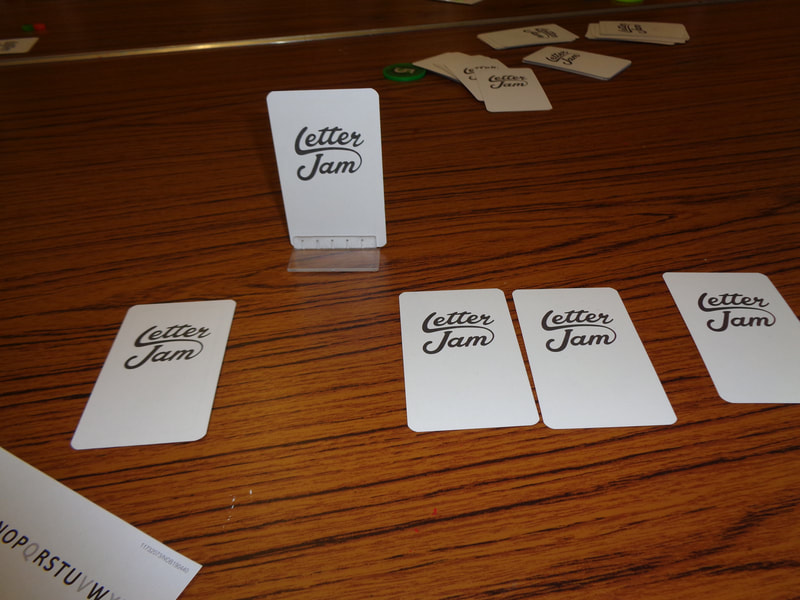
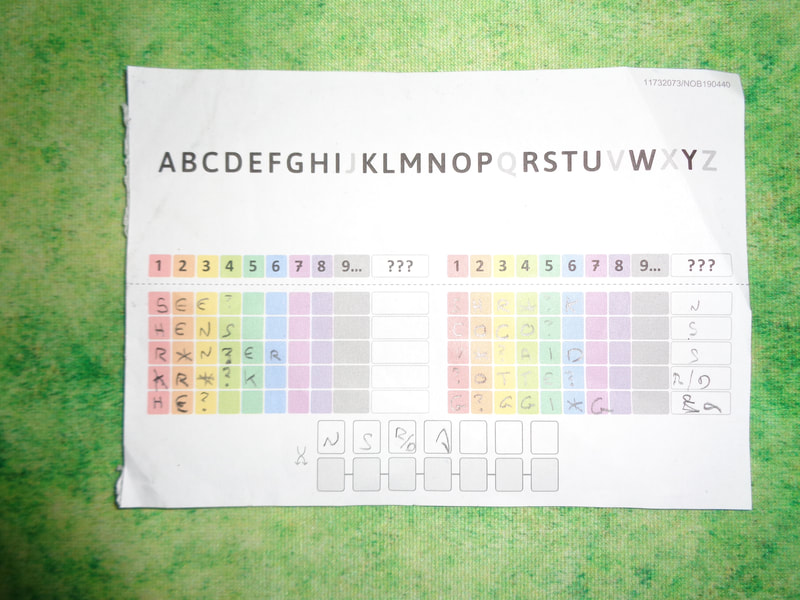
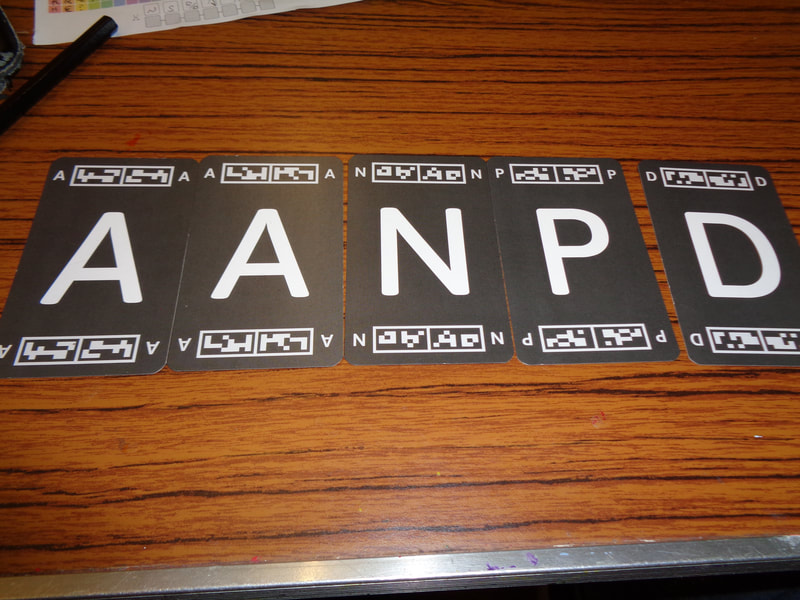
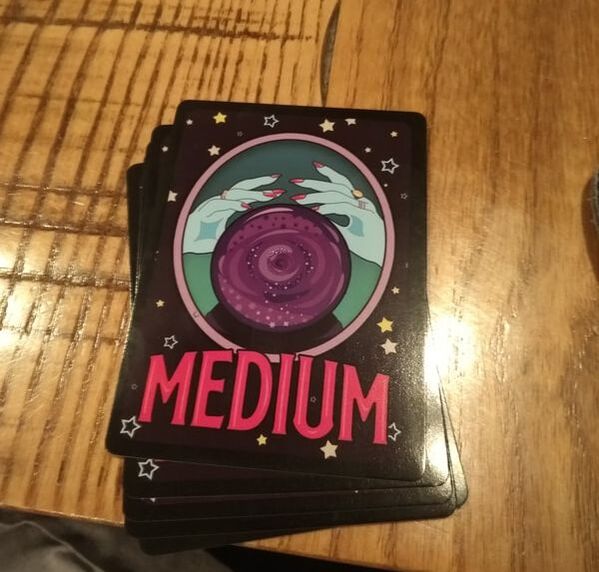
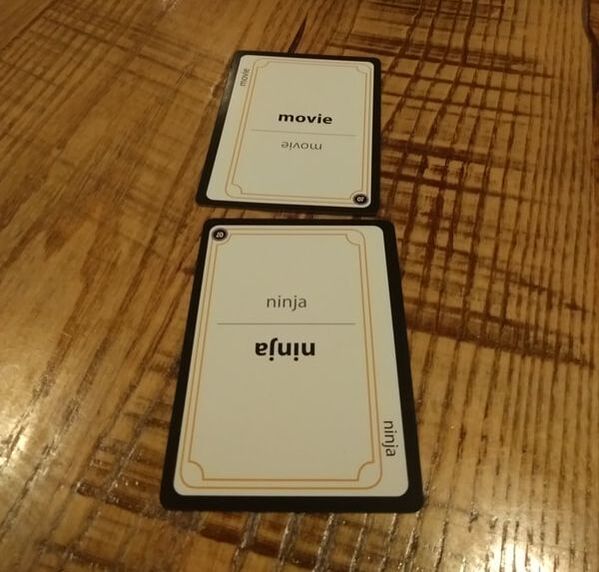
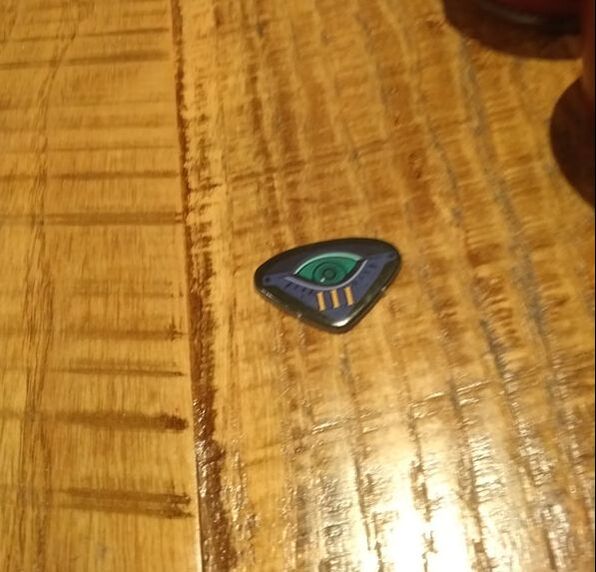
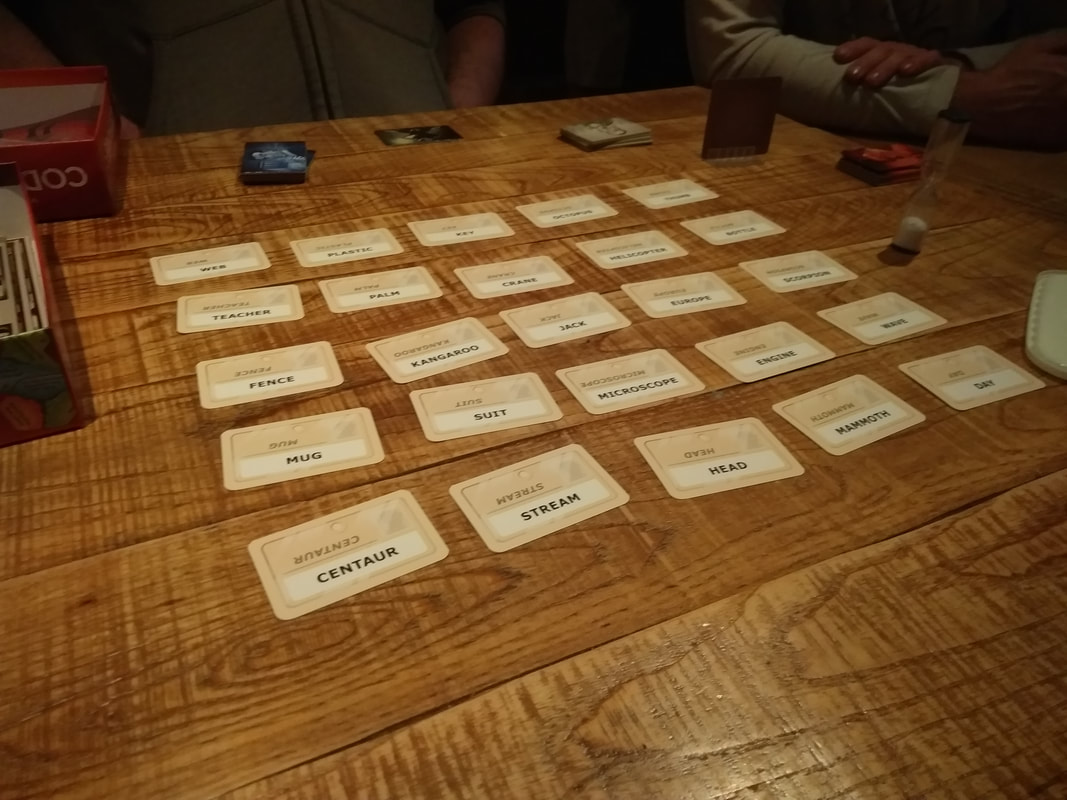
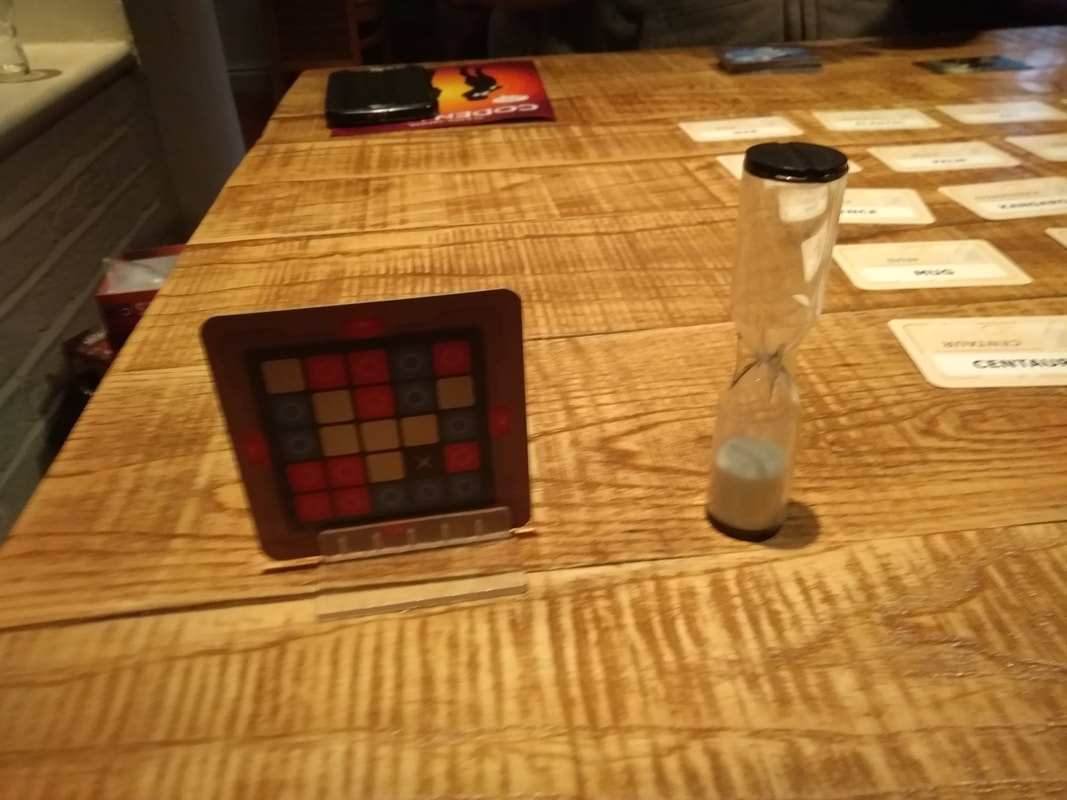
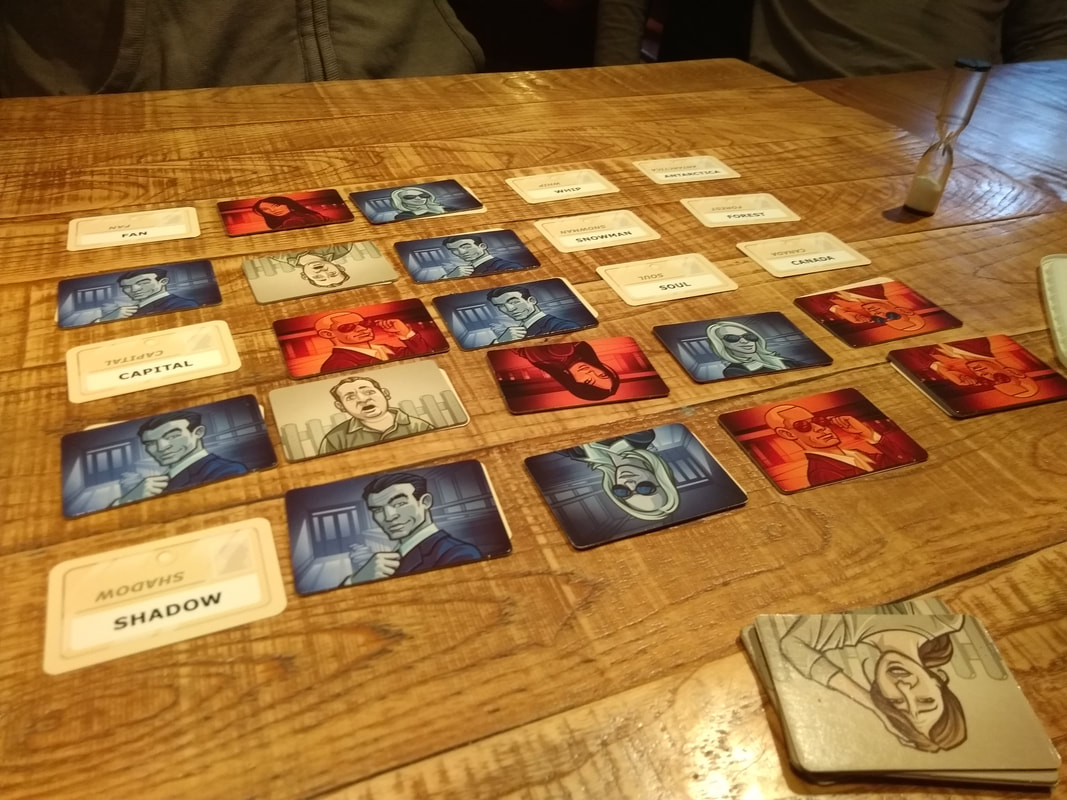
 RSS Feed
RSS Feed
